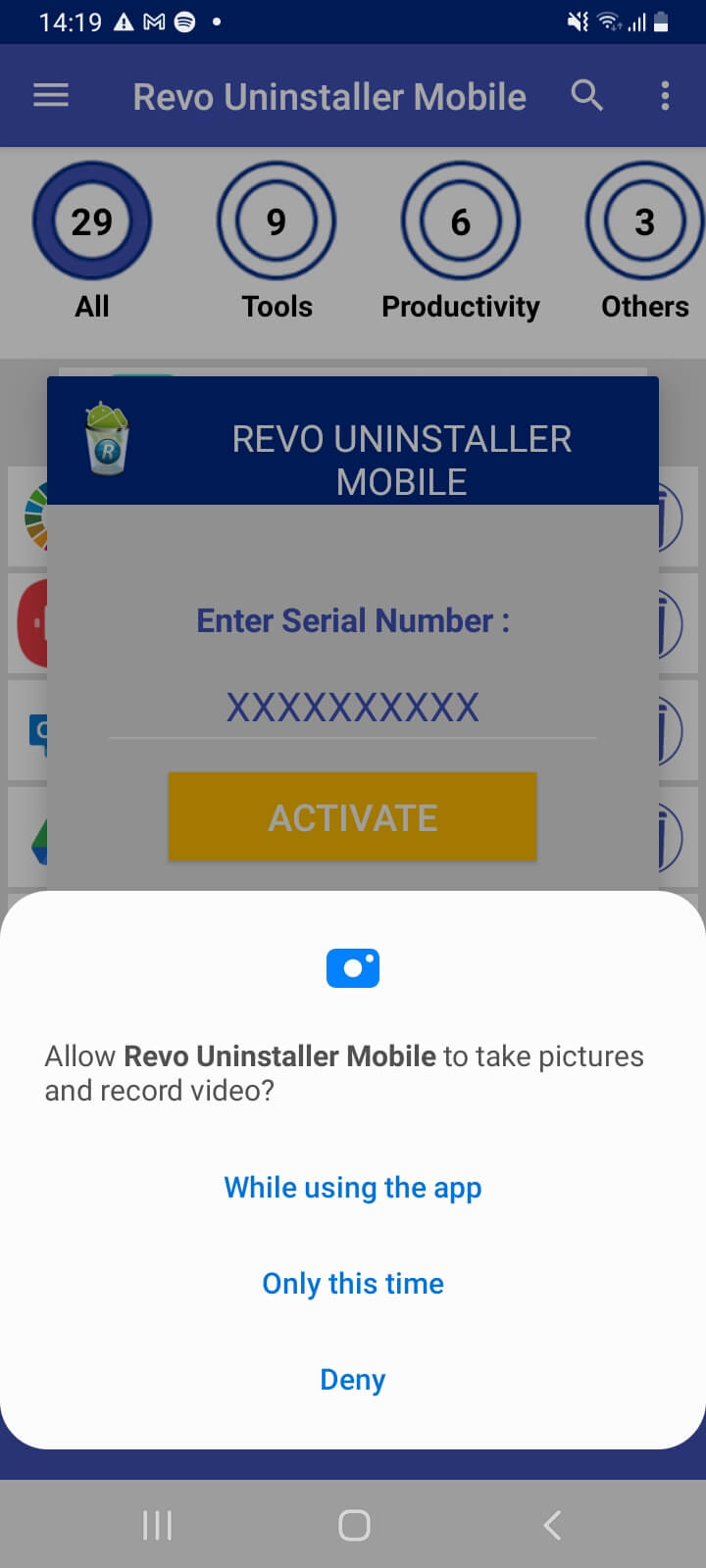When it comes to Android, privacy and security are not the most common topics for most users, however they are today's subject. Speaking of which, they make up half of any device's security. The other half is the device's software. They can compensate for the other inadequacies but only to a small extent. In the software world it is a balancing act: introducing various restrictions improves security but at the expense of convenience and flexibility; and vice versa. Implementing elegant solutions to bridge the gap is a challenge for basically every software, however, nowhere is this more applicable than operating systems.
Android 6 had a major step forward with the introduction of on-the-fly permissions – requesting them on-demand, when they are actually necessary (e.g. our own Revo Uninstaller Mobile requesting access to the device's camera if the user wishes to activate by scanning a QR code, as illustrated by the screenshot below).

Android 10 made another step in the right direction by adding one-time permissions, although that covered only the "LOCATION" permission. Android 11 improves on this by expanding that functionality to the camera and microphone.
Whenever an app prompts a user with a permission request for the location, camera, or microphone, in Android 11, in addition to the standard options to allow (which has been renamed to "While using the app") or deny, users will also have the option to grant a one-time permission by tapping "Only this time".
Android will grant the requested permission but only until the app is closed (by swiping its window up from the running apps list). Once the app is closed, the permission is revoked, and the app would need to request it again in the future.
This may seem like a small change at first but it gives a lot of power to more careful and informed users. An example would be the above-mentioned scanning of a QR code. To do that, the app requires access to the camera, of course. However, scanning a QR code is usually a rare or a one-time occurrence, and granting that permission means that from that point on the app can use the camera at any time for any reason, even if it was actually needed only once. Another example: an app that you have used for аwhile suddenly asks for a permission to use the microphone, which may seem unusual at first glance. Of course, it may be a perfectly legitimate request. You grant the app a one-time permission, and begin to keep an eye on it to see if the same permission would be requested again, and under what circumstances.
A quick disclaimer is in order here: we do not claim that apps tend to abuse their granted permissions but merely that it is possible for them to do so on a technical level.
So, I've granted numerous permissions to various apps. How do I manage them all?
Android already offers ways to change permissions for apps, so that is one solution. However, we would like to recommend our very own Revo Permission Analyzer. It is built on top of what Android already offers, however, due to its capabilities to group, organize, and filter apps based on permissions, it makes management significantly easier and more convenient. You can also get an excellent overview of the overall permission and privacy status of your device with a single glance.
To top it all off, it includes an integration with our Revo Uninstaller Mobile, should you have it installed as well, for a faster removal of any app you deem unwanted.